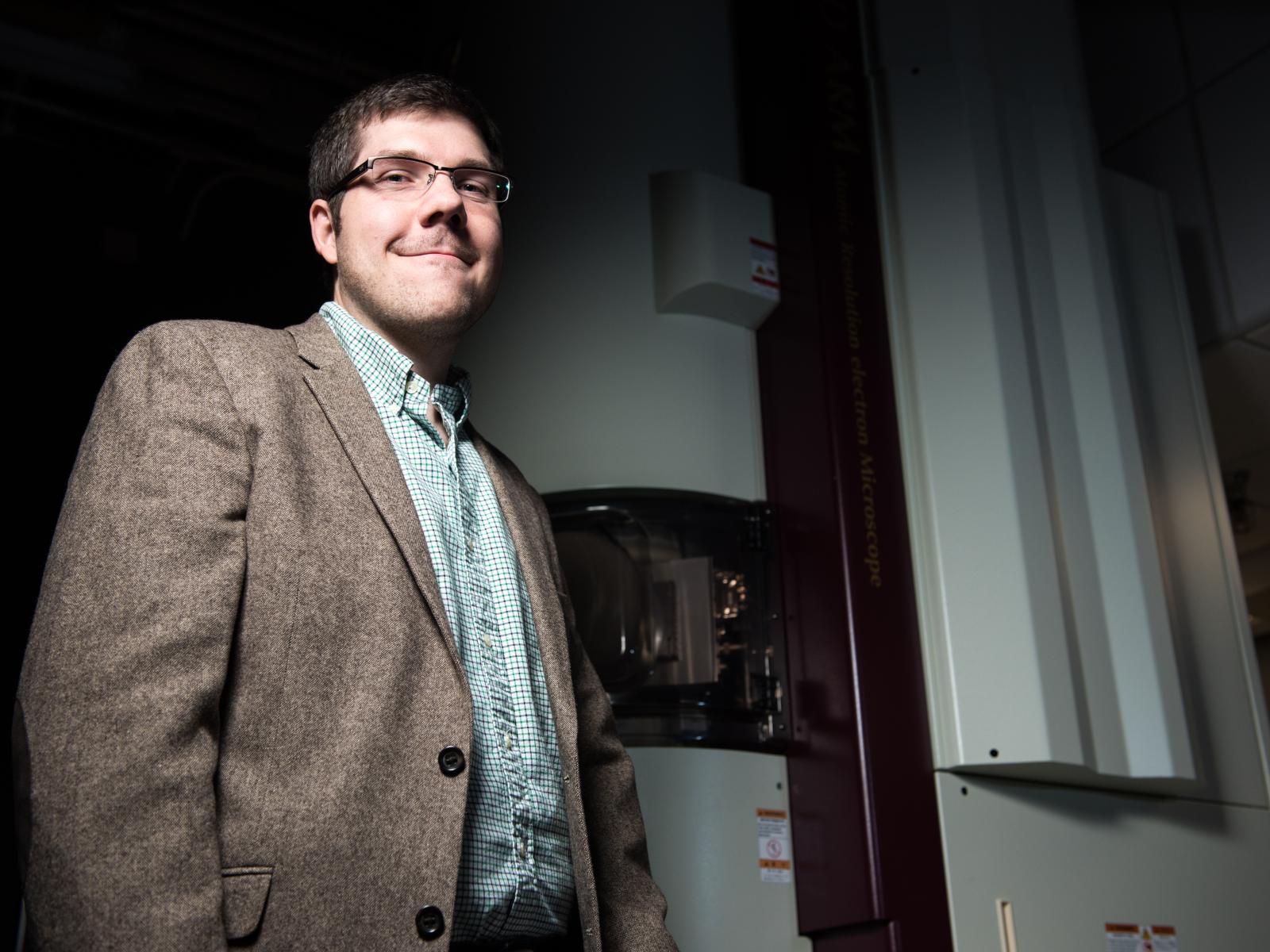Spurgeon Featured on the Cover of MRS Bulletin
"We’re turning microscopes into self-driving instruments."

Spurgeon, a material scientist and microscopy researcher, is an internationally recognized leader in artificial intelligence (AI)-driven materials discovery and design.
(Photograph by Andrea Starr | Pacific Northwest National Laboratory)
This month, Steven Spurgeon’s research is featured in the cover of the MRS Bulletin, the flagship journal of the Materials Research Society, along with his team’s invited perspective on the future of machine learning for electron and scanning probe microscopy.

Spurgeon, a material scientist and microscopy researcher, is an internationally recognized leader in artificial intelligence (AI)-driven materials discovery and design.
In the article, Spurgeon and his co-authors provide a perspective for what AI in material characterization looks like and where the field is going in the next few years.
“I am really excited for this opportunity to shape the direction of research in the field and motivate my peers to see the possibilities in artificial intelligence,” said Spurgeon.
Spurgeon’s work is part of the Energy Storage Materials Initiative (ESMI), a Pacific Northwest National Laboratory (PNNL)-funded effort to accelerate the development of energy storage technologies by pioneering a digital twin of a battery through physics-informed data models that integrate experimentation across disciplines.
In ESMI, his research focuses on using AI-guided electron microscopy to find a better cathode material for grid-level energy storage batteries.
“Through a unique few-shot machine learning, we’re turning microscopes into self-driving instruments that can screen and unravel the complex behavior of battery cathode materials with unprecedented speed, statistical rigor, and fidelity—something that would be impossible for a human to do by hand,” said Spurgeon.
And this new technology may have its prime time soon. PNNL has recently licensed this technology to JEOL-IDES, a manufacturer of scientific instrumentation, and anticipates its market release over the next two years.
“As both the scope and scale of microscopy driven materials research problems have expanded, it’s never been more important for researchers to apply analytical and automation techniques that can keep pace," said Daniel Masiel, Chief Executive Officer at JEOL-IDES, "we see our partnership with PNNL as a key part of our efforts to better serve researchers that are addressing these challenges.”
“Through our industrial partnerships, we are aiming to design one-of-a-kind AI-enabled microscope technology that will position PNNL at the forefront of materials characterization, discovery, and design,” said Spurgeon.
Published: December 2, 2022